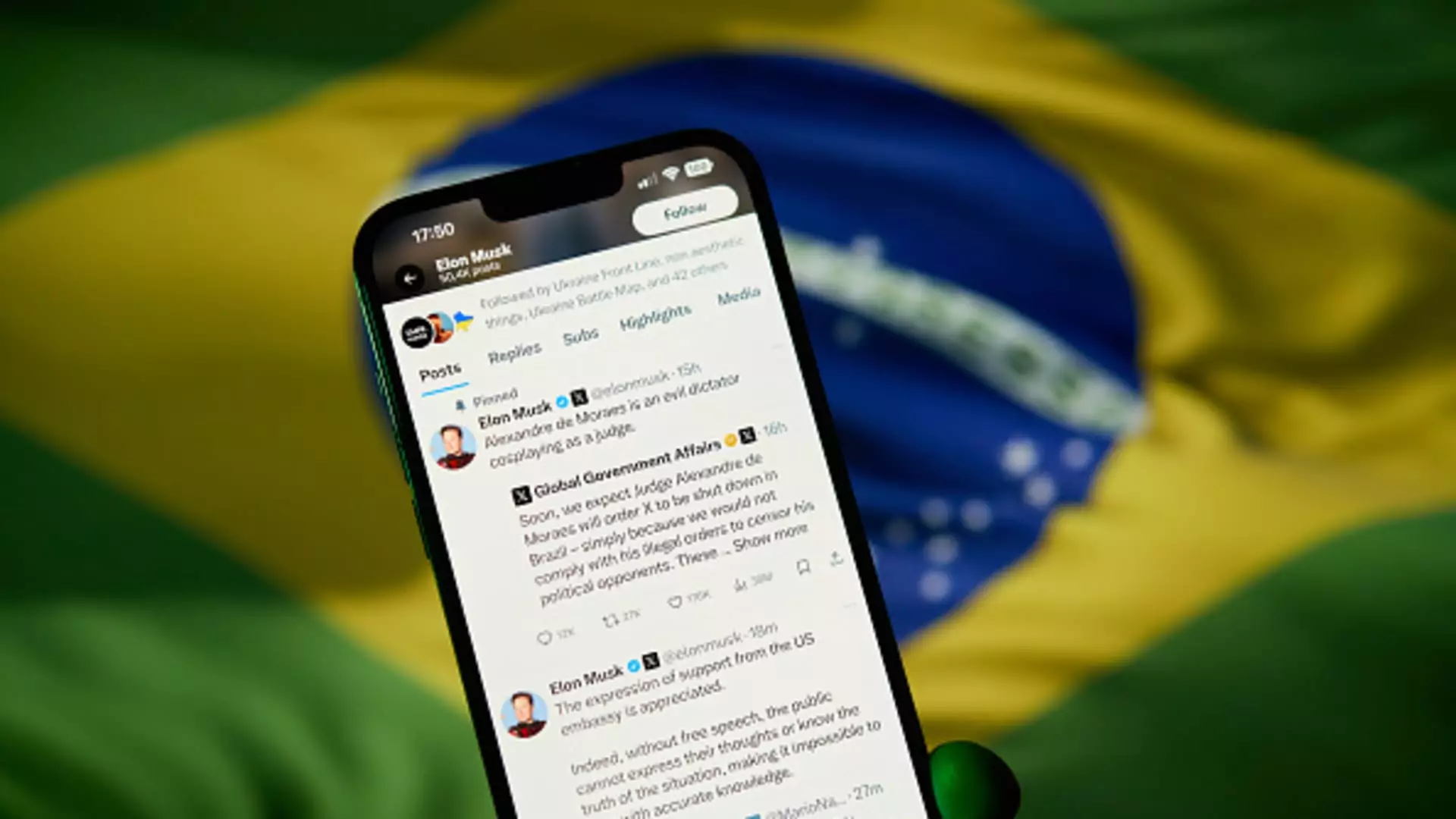The recent decision by Brazil’s federal supreme court to suspend the use of Elon Musk’s social network X nationwide has raised significant concerns and controversies. The unanimous vote by the panel of justices to uphold the suspension orders has sparked a debate on the limits of free speech and the power of the government to regulate online platforms. Justice Luiz Fux’s vote to uphold the decision while expressing “reservations” about the measure of allowing fines for individuals or businesses using “subterfuge” to access X during the ban highlights the complexity of the issue.
The suspension orders issued by the court’s top justice, Alexandre de Moraes, added fuel to the fire by imposing strict penalties on Musk and X for non-compliance. The threat of suspending activities and freezing the financial assets of Starlink, another company led by Musk, underscored the severity of the situation. The court’s mandate for internet service providers to block access to X until it adheres to the legal requirements further intensifies the conflict.
X’s defiance of court requests to remove objectionable content led to a series of punitive actions by the Brazilian authorities. Musk’s refusal to appoint a legal representative in Brazil and the subsequent escalation of insults and calls for impeachment against de Moraes demonstrate the deepening animosity between the tech billionaire and the judiciary. The standoff between X and the Brazilian government has significant implications for the future of online freedom and regulation in the country.
Elon Musk’s self-proclaimed advocacy for free speech is coming under scrutiny due to the conflicting actions of his companies. While Musk has resisted censorship demands from certain countries, the selective removal of content critical of ruling parties in Turkey and India raises questions about his commitment to unfettered expression. The inflammatory statements made by Musk, including threats of reciprocal confiscation of assets and calls for ending U.S. foreign aid to Brazil, have further complicated the situation.
The blocking of X in Brazil has had a divisive effect on users and politicians, with some expressing doubts about the legitimacy of the ban. The difficulty faced by many Brazilians in navigating other social media platforms in the absence of X highlights the platform’s significance in the country. The shift of some users to alternative social networks like Bluesky indicates a changing landscape of online communication in Brazil.
The suspension of Elon Musk’s social network X in Brazil has opened up a Pandora’s box of legal, ethical, and political issues. The clash between Musk’s vision of free speech and the Brazilian government’s regulatory authority underscores the complex nature of online governance. The implications of this conflict will reverberate beyond Brazil, influencing global discussions on internet freedom and accountability. It remains to be seen how this standoff will be resolved and what lessons will be learned for future interactions between tech giants and governmental bodies.


Leave a Reply